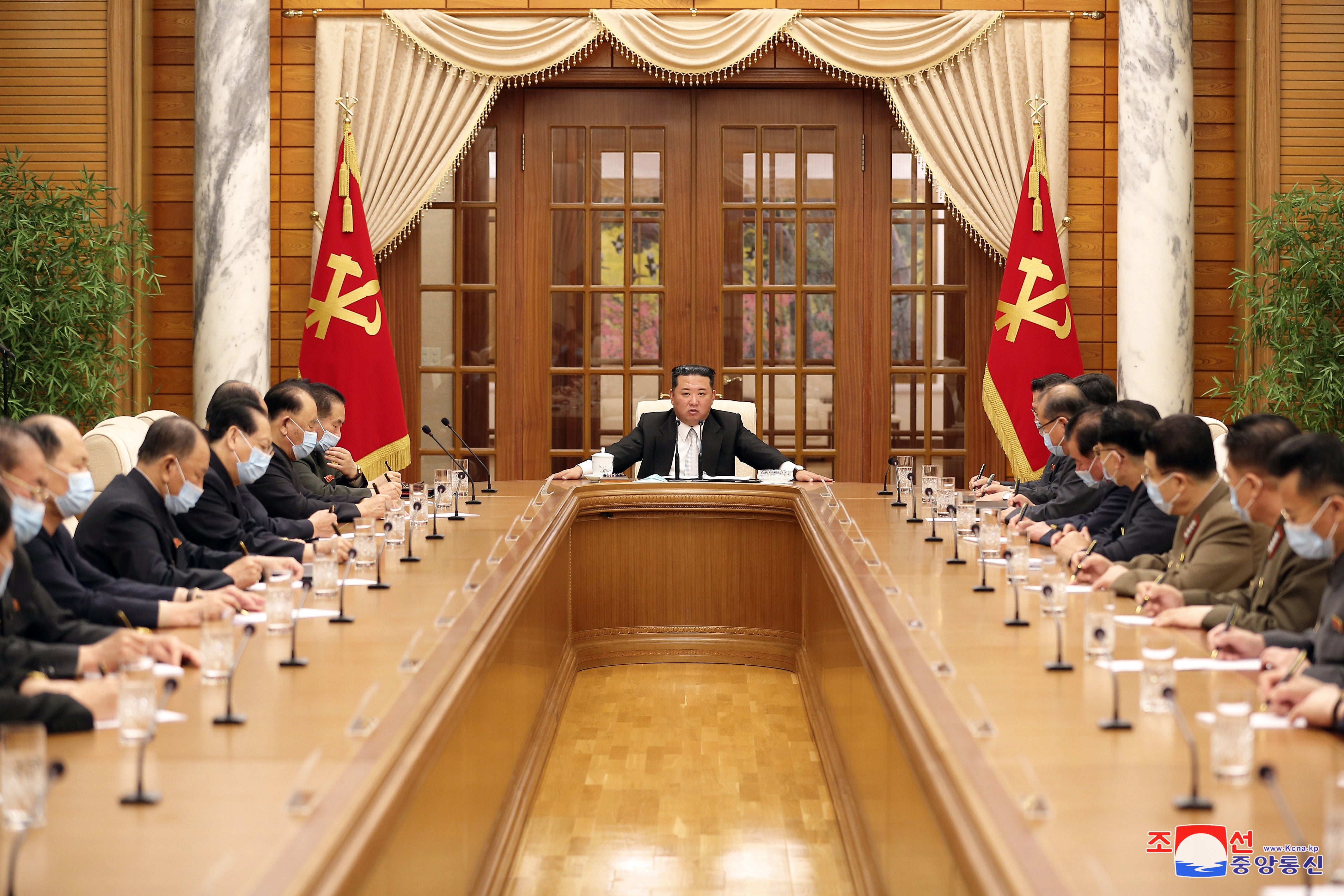For the first time, North Korea confirms Covid outbreak and orders strict national lockdown
No one in North Korea is believed to have been vaccinated

North Korea has confirmed an outbreak of coronavirus in the country for the first time since the pandemic began, describing it as the “gravest national emergency”.
Kim Jong-un declared a nationwide lockdown and vowed to quickly eliminate the virus.
The country’s state-controlled news agency, KCNA, said: “There has been the biggest emergency incident in the country, with a hole in our emergency quarantine front that has been kept safely over the past two years and three months since February 2020.”
This is the first public acknowledgement of coronavirus infections in a country in which the media is strictly controlled.
North Korea had previously claimed to have recorded zero cases of Covid-19 since the pandemic began in 2020 – a claim that was widely doubted by health experts and analysts.
While the rest of the world concentrated on the pandemic, Mr Kim’s regime had remained focused on alleged foreign threats to national security, conducting a spree of missile tests while pursuing the development of nuclear weapons along with its ballistic missile programme.
Analysts now note that the country is entering a period of uncertainty as the virus presents a more immediate challenge.
On Thursday, state media confirmed that infections linked to a subvariant of the highly transmissible Omicron variant, known as BA.2, had been detected in the capital city, Pyongyang.
An announcement via KCNA said: “The state epidemic prevention work shall be switched over to the maximum emergency epidemic prevention system.”
Samples were collected from those infected with the virus on 8 May, according to the agency. However, the size of the outbreak is currently unknown, as is the source of the infections.
The admission that the virus has entered North Korea highlights the potential for a major health crisis in a country that has failed to administer a Covid-19 vaccine programme to its 26-million-strong population. The government rejected offers of free vaccines, including Sinovac – which is made in China – and AstraZeneca.
The Rodong Sinmun, the newspaper of Mr Kim’s Workers’ Party of Korea, said the politburo of the party had “admitted” that there had been a “breach” in the strict Covid measures introduced by North Korea in an effort to prevent the virus from entering the country, according to Seoul-based NK News.
Members of the party criticised the health agency in charge of the anti-epidemic measures, accusing it of “carelessness, laxity, irresponsibility, and incompetence”, and of failing to respond swiftly to the potential risk.
Leif-Eric Easley, a professor at Ewha University in Seoul, said the North Korean regime’s public admission of the outbreak means that the “public health situation must be serious”.
“This does not mean North Korea is suddenly going to be open to humanitarian assistance and take a more conciliatory line toward Washington and Seoul,” he said. “But the Kim regime’s domestic audience may be less interested in nuclear or missile tests when the urgent threat involves coronavirus rather than a foreign military.”
He added that Pyongyang is likely to double down on lockdowns, even though the evident failure of China’s zero-Covid strategy suggests that this approach won’t work against the Omicron variant.
“North Korea is entering a period of uncertainty in managing its domestic challenges and international isolation. The Kim regime would be well advised to swallow its pride and quickly seek donations of vaccines and therapeutics,” he added.
North Korea has halted trade with neighbouring countries, closed its railway network, and sealed its borders since the start of the pandemic – a response that resulted in a dire economic situation and left its people facing food shortages after supply chains were hit. The deteriorating situation forced several diplomats to flee the country. Images showed them leaving on hand-pushed carts, or walking miles to cross borders.
While North Korea had previously claimed that there were no cases in the country, there have been signs and unconfirmed reports of Covid infections among its people. Its neighbours South Korea and China have seen major outbreaks, and the latter is continuing to struggle to control its latest wave of the virus.
Subscribe to Independent Premium to bookmark this article
Want to bookmark your favourite articles and stories to read or reference later? Start your Independent Premium subscription today.

Join our commenting forum
Join thought-provoking conversations, follow other Independent readers and see their replies